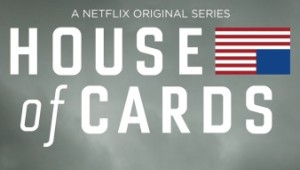Recently, a writer seemed to conflate fangirling with praising other women and pegged these gestures, especially if made in public spaces, especially online, as disingenuous. Later, she adds that in the past, when contact information or an address for celebrities and other known individuals was harder to find, sending a letter of praise actually took some work, so it meant more. This is the old “I walked three miles to school in the snow, up seven hills, and barefoot” cliché. Just because something took longer or was more difficult to achieve doesn’t automatically give it more worth. Social media isn’t a throwaway for most people. The argument comes off as a dismissal of the modern instead of realizing that people often simply find new ways of doing the same things. We’re social animals, and just because we can reach out to those we admire more easily and openly, it doesn’t devalue the statements within.
An example cited in the piece was a tweet by actress Anna Kendrick talking about shaking at the unforgettable moment of meeting Beyonce. Now, putting myself in that position, I would also be shaking at meeting Beyonce. None of this effusive praise is new; it’s just the format has changed, grown, and widened.
I was sixteen when I attended a reading featuring Dominican-American author Julia Alvarez, whose work I devoured, related to, found traces of my own family within, and from her work, even drew inspiration. I was a poor girl and didn’t have the money to buy a copy of her latest book, but I joined the line at the public event in the hope I could just get a moment with her. My turn arrived, so I approached the table, probably stumbled over some words or spoke too rapidly, forgot to inhale, communicating just what her work meant to me. She took my hands, a kind, steadying gesture, and one I won’t forget. She thanked me, and I told her I was also a writer, that I loved her work, and she asked about me too. Finally, she wished me luck and even signed notebook with “Suerte” and a heart.
This was before social media, but fangirling has been around far longer than widespread internet, if by other names. These moments may pass unregarded, sentiments tweeted or expressed in comments on Instagram or in a Tumblr reblog, may be ephemeral. Yet, being interested in someone’s work or having shared interests, especially if those interests elicit similar emotional responses, these are the types of connections that, with some degree of luck and circumstance, may last long term. For an artist, a show of support may be more meaningful than a fan will ever know directly, and there’s nothing lost in expressing it.
There’s nothing like meeting someone else who was a total stranger to you yesterday, then discussing a shared interest, fandom you both follow, your tears over a death or development in the series that made an impression on both of you. Sometimes that ends in a hug and staying in touch. Sometimes these very interactions expand your whole universe. Devaluing the rich variety of channels we have these days to connect with one another comes across as extremely shortsighted. Criticizing positivity and happy messages, even simple supportive posts and tweets of approval, which can be very gratifying, just seems like sour conduct. This isn’t a case of sycophants, but mostly seems like harmless positive expression and declaring someone or something they have done is valuable.
It’s certainly better than a slew of articles suggesting women hate one another. We’re individuals, and some of us like to express our positivity. Would I still be a writer had Julia Alvarez not been so kind to the awkward teenager before her? Yes, I think so, but that memory, the positivity of that experience stays with me. So does the support I received from some friends I met who, shortly after I joined a shared online group, listened to and helped me through an issue that took months of frustration to resolve. It was an unexpectedly strong treasure to find at that time in my life, and these friendships have lasted.
So, yes, I’m on the positivity train. If someone is hurting or going through something, I try to offer words, at minimum, but sometimes gushing openly about how awesome someone is could lift both of your days. Even tweeting to someone you respect, engaging with them, might lead somewhere. You never know. Being excited about things, feeling joy, gratitude, and inspiration, these are some of life’s finest moments. Should receiving them intersect with moments of despair, loneliness, or loss, there’s a special kind of hope in these connections that is likely as old as humanity.
Sometimes it feels like joy is looked down upon, shamed, or discouraged. When something is clearly meant to be enjoyable, it’s often disparaged as being of poor quality or not meaningful. Down with that. Meaningful doesn’t have to take huge effort and because of that, tell someone she’s awesome today. And tomorrow. And so on. It will feel great.



